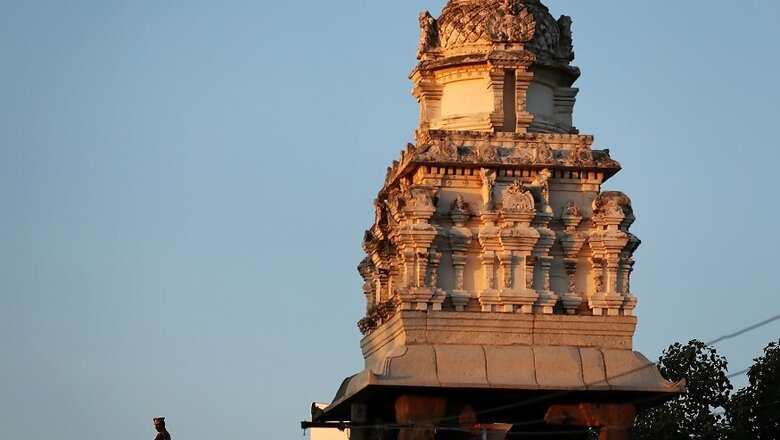
views
The Tamil Nadu government on Monday issued a Standard Operating Procedure for places of worship in rural areas, outlining norms to prevent the spread of coronavirus. It includes prohibition for "physical offerings like prasad, distribution or sprinkling of holy water to be allowed inside the religious place."
Offerings such as coconut, fruits and flowers shall not be allowed. During poojas and abishekam, the public must not be allowed to sit inside and witness the event, the SOP said.
In view of the potential health issues, "devotees may be discouraged to do prostration /angapradhatchanam till normalcy returns."
From Wednesday, small temples, mosques, darghas, churches and other religious places in rural areas would be open for public worship in Tamil Nadu.
In village panchayats falling under Tiruvallur, Chengelpet and Madurai, worship would be allowed from July 6.
In mosques, prayers should not be offered by sitting shoulder to shoulder.
Physical distancing of six feet shall be maintained while offering prayers and not more than 20 people can be accommodated in 100 square meters, which shall be marked with paint in circles, rows or boxes.
"Staggering of people should be done to avoid crowd and social distancing should be followed, particularly on Friday for Jumma prayers."
Under general norms covering all places of worship, the SOP said senior citizens above 65 years of age, people with co-morbidities, pregnant women and children below the age of 10 years are advised to stay at home and only asymptomatic persons shall be allowed.
A distance of six feet should be maintained by people and masks must be used compulsorily, the SOP said, adding "installation and use of Arogya Setu App is advised."
Common prayer mats should be avoided and devotees should bring their own mats or piece of cloth which they may take back with them.
"People should wash their hands and feet with soap and water before entering the premises. Necessary facilities shall be provided for this purpose. Touching of statues, idols and
holy books, are not to be allowed."
Places of worship in corporations, municipalities, town panchayat areas and big places of worship in village Panchayat limits would remain closed for public worship.















Comments
0 comment